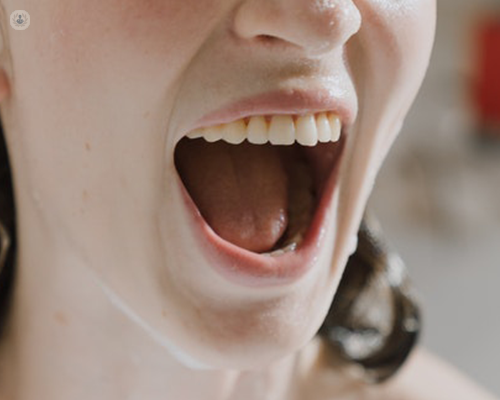Tonsil stones (Tonsilloliths)
Autore:Tonsilloliths or tonsil stones occur in roughly 10% of the population, but not many people are aware of them, or know how to get rid of them. Mr Prince Modayil, a consultant ENT surgeon with over 20 years of experience, describes this condition and the treatment options for it.

What are tonsil stones?
Tonsils contain a lot of pits on the surface (crypts). Food and bacteria can get lodged in these pits. Tonsil stones are calcified (hardened) lumps of food, bacteria, dead cells and other matter that form in the pits of the tonsils in the throat. Most of the time, these are cleared by saliva and swallowing mechanisms, but sometimes they get lodged in these pits and become hardened with calcium deposits. They are usually a creamy/yellow colour and the size of a gravel stone.
At what ages do they occur?
Tonsil stones are most common in adults but they can happen at any age.
What are the symptoms of tonsil stones?
In general, they do not cause any problems, although occasionally patients report bad breath (halitosis & confidence issues), gagging and throat discomfort due to the presence of these stones.
How common are tonsil stones?
It has been reported that the detection rate of tonsilloliths was under 25% although experience suggests otherwise. A study reported 46.1% subjects with no symptoms in the throat had one or more tonsil stones.
What are the factors promoting tonsil stone formation?
The following factors are known to lead to tonsil stone formation:
- Tonsils with deep pits (crypts)
- Repeated tonsillitis
- Poor oral hygeine
- Dry mouth
What is the treatment for tonsil stones?
In most cases, no treatment is necessary as the stones are swallowed with saliva, coughed up or they dissolve by themselves. Removal of the tonsil (tonsillectomy) is the definitive treatment for this condition.
Are there any home remedies for tonsil stones?
Removing tonsil stones without professional medical help is not advised because tonsils are extremely delicate, so attempting to remove the stones at home can cause excessive bleeding.
However, here are some home remedies that may help get rid of tonsil stones, or at least relieve some symptoms:
- Gargling with salt water may help dislodge the stones. This can be prepared by adding half a teaspoon of salt to a cup of warm water.
- Non-alcohol mouthwash gargles may help dislodge stones and also improve bad breath.
- Low-pressure water flosser, can help loosen tonsil stones. Use this method carefully because if not done properly it may result in injury to the tonsils or choking. This should not be done on children.
- Remove with a cotton swab: Moisten the swab and gently dislodge the stone. Tonsil tissue is delicate and contain small blood vessels. If bleeding occurs, stop using the swab. I would not recommend using this method.
For some lucky patients, a strong cough has been enough to dislodge the stones. If tonsil stones do not go away on their own and are causing bad breath (confidence issues), gagging or a sore throat the treatment options include:
- Removal of crypts using coblator: a treatment that uses radio waves to change a salt solution into charged ions that can cut through tissue to reduce tonsillar crypts and get rid of tonsil stones. This can still cause recurrence of problems as tonsils regrow and crypts can reform.
- Tonsillectomy: surgical removal is the definitive treatment.
However, patients should bear in mind that tonsillectomy requires general anaesthetic and carries 5-6% risk of bleeding. There is no evidence that the presence of tonsil stones leads to long term health issues and a lack of evidence exists to support the use of tonsillectomy in the management of all tonsil stones.
How can tonsil stones be prevented
The following steps should be taken in order to reduce the chances of developing tonsil stones.
- Keep hydrated with plenty of fresh water
- Keep on top of oral hygiene and brush your tongue as well as your teeth
- Swill your mouth out with salty water regularly
- Do not smoke
If you think you need to be assessed by a leading ENT specialist, visit Mr Prince Modayil's Top Doctors profile to request an appointment with him.


